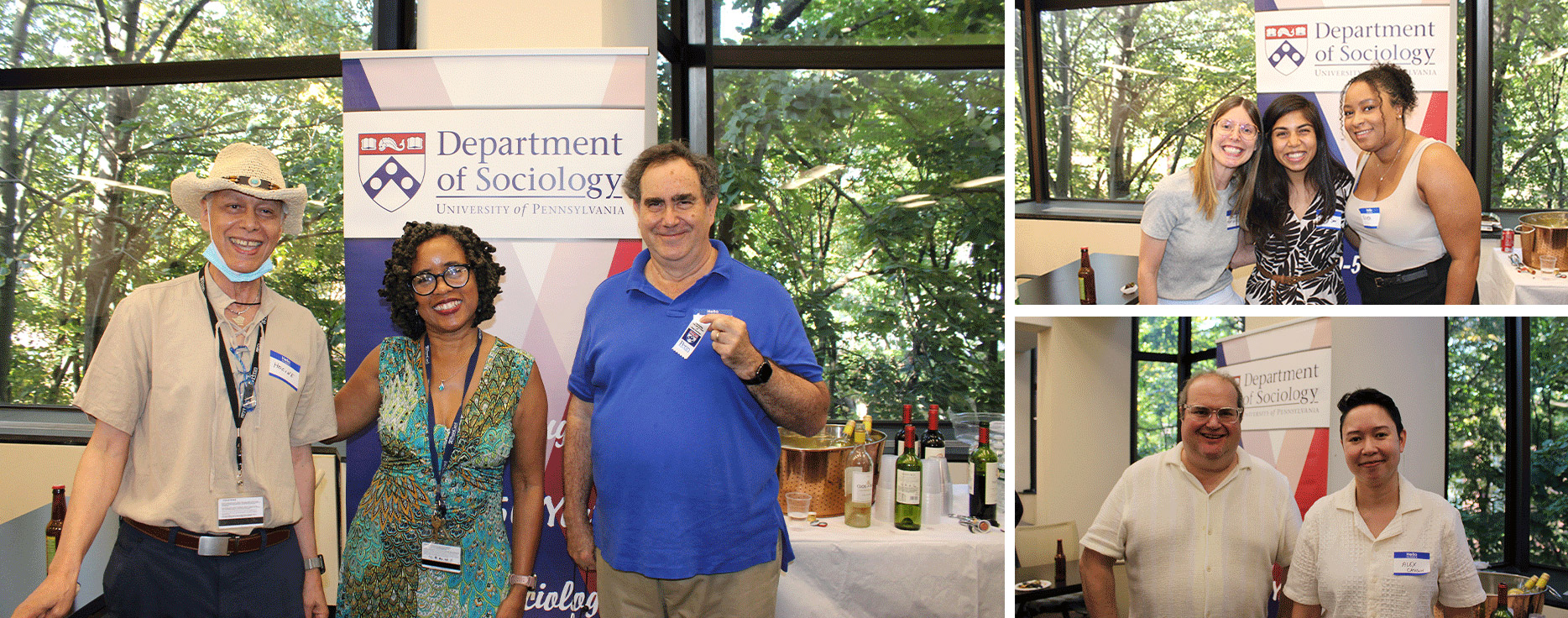For the Department of Sociology, 2024 marks a time for both celebration and reflection. “It’s a marker for three events,” says Professor Jerry Jacobs, who has been a member of the department for 40 years.
“In 1874, 150 years ago, the first professor of social science was appointed at Penn. His name was Robert Ellis Thompson. That puts us right up there with the beginnings of the field of sociology,” Jacobs says. A hundred years ago, in 1924, sociology became a major as part of the Wharton School, and then “50 years ago, we moved out of Wharton, along with economics and political science, becoming a department in the newly created School of Arts & Sciences,” he says.
A few aspects have remained remarkably consistent over the past century. For instance, since 1896, some form of Social Problems, a course Jacobs teaches, has been offered almost every year. So, the faculty felt the trio of anniversaries offered a nice excuse to laud the department’s historical strengths, like the 10 of its scholars who have served as president of the field’s biggest association, and the Ph.D. students who have gone on to fill positions in top academic departments across the country.
It’s also a moment to remember the department’s influential scholars, like Erving Goffman, Dorothy Swaine Thomas, E. Digby Baltzell—and of course, W.E.B. DuBois, who penned his famous Philadelphia Negro here. DuBois was never made standing faculty during his time at Penn, but after a campaign led by Tukufu Zuberi, Lasry Family Professor of Race Relations, he received the designation posthumously in 2012, more than 100 years later.
“DuBois was one of the most important sociologists of all time,” says Melissa Wilde, Professor and Chair. “Not hiring him was one of our glaring mistakes. We can’t rectify that now, we but can call attention to it.”
In the past several decades, Wilde says the department has made a real push to diversify its faculty and student population. “When I first arrived at Penn as an assistant professor, of the department’s 25 standing faculty, only one female was a full professor. Today, more than half of our faculty are women.” She also notes that the department continues to expand its expertise in up-and-coming areas like sexuality and environmental sociology. “We’re always concerned with making sure we’re contemporary and relevant, at the cutting edge of issues in society,” she says.
Zuberi, who has been in the department for 36 years, has seen progress made, and says he still hopes for more. “It’s always important to look at the past as you go forward, hopefully as a pointer to an even brighter future,” he says.
These important milestones in the department’s history inspire its faculty and students to keep the momentum going, creating a welcoming home for the sociologists of tomorrow that is both informed by the past and focused on future advances in the field. “I hope we can continue to hire the most rigorous, innovative, and publicly engaged sociologists who exist,” Wilde says. “It’s an honor to be chair of a department that’s been so important and visible for so long.”




